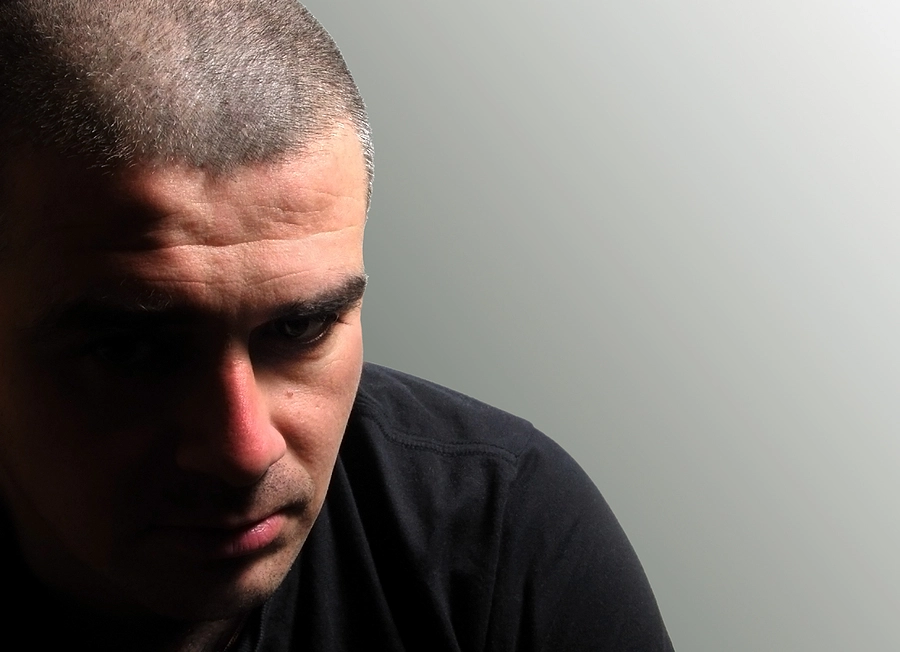VA disability for anxiety disorders can continue as long as symptoms persist, but veterans may encounter obstacles demonstrating they deserve long-term disability compensation.
Summary
- Veterans often face long-term anxiety due to service-related experiences such as trauma, separation from loved ones, and dangerous conditions. The VA offers disability compensation for service-connected anxiety disorders.
- Anxiety disorders like panic disorder, generalized anxiety disorder, phobias, and social anxiety disorder can severely impact veterans’ personal, professional, and physical well-being.
- Veterans must navigate VA rules to preserve their anxiety disorder ratings. While ratings may decrease with symptom improvement, the VA’s 5-, 10-, and 20-year rules limit rating reductions over time. Veterans may also pursue Permanent and Total disability ratings for irreversible conditions.
- The VA may deny anxiety claims for a variety of reasons, and anxiety disorders themselves can hinder veterans’ ability to advocate for their VA benefits, making legal support crucial in appeals.
Frequently changing locations or assignments, engaging in strenuous physical activity, operating under strict time constraints and dangerous conditions, being separated from loved ones, losing colleagues, and experiencing traumatic events can place an enormous amount of mental stress on military personnel.
However, many veterans bring that anxiety home with them.
To address the long-term consequences of anxiety disorders like phobias, panic disorder, and social anxiety, the VA issues monthly disability for anxiety. VetLaw plays a key role in guiding veterans to secure these disability benefits for their service-connected anxiety disorders.
For a more in-depth assessment of your VA anxiety disorder claim, reach out to VetLaw at (855) 932-1190 or submit an online contact form. Our team will help you schedule a free consultation with a veterans disability benefits lawyer who can determine the best way to proceed with your VA anxiety disorder claim.
Types of Service-Connected Anxiety Disorders That Affect Veterans
Veterans with service-connected anxiety experience an exaggerated fear response in certain situations. Like many other mental health disorders, anxiety disorders can impact a veteran’s personal and professional relationships, sleep, self-image, and physical health.
Talk therapy, medication, psychosocial support, in-patient care, and other forms of medical treatment can help veterans cope with their service-connected anxiety disorder. However, these mental health conditions can be highly disruptive, and costly, over the long term.
VA disability payments for anxiety compensates for medical bills, lost income, compromised mental functioning, and other expenses resulting from the veteran’s service-connected anxiety disorder. Notable anxiety mental disorders include:
- Panic disorder
- Generalized Anxiety Disorder
- Agoraphobia and other Phobias
- Social Anxiety Disorder
The intensity and duration of anxiety symptoms can be influenced, to a degree, by the level of community support from family members and friends a veteran has. Their ability to access a rehabilitation program and other anxiety resources can also have an impact.
Demonstrating Your Anxiety Deserves Disability Benefits
Regardless of which anxiety disorder you claim, the VA will require you to show you meet the standard criteria for disability for anxiety. That means using your military service records to prove that you are a veteran with a connection between your anxiety disorder and your service.
Beyond that, you will need a medically documented history of anxiety observed by medical providers and a disability evaluation by the VA.
Medical Evidence Plays a Critical Role in Mental Health Claims
To strengthen your VA claim for disability benefits, you will also need objective medical evidence that you are experiencing excessive anxiety symptoms such as sleep disturbances, panic attacks, and difficulty concentrating.
Your medical records should also show that you have received ongoing medical treatment for serious and persistent anxiety. This can include medications as well as mental health therapy.
In addition to your full medical records, a strong medical nexus letter can outline how your in-service experiences caused or aggravated your anxiety disorder. This medical documentation forms the basis of your service connection.
Additionally, the VA will want proof of a diagnosis for your anxiety disorder before it provides a rating based on your anxiety symptoms. Then, your veteran disability benefits attorney can help ensure that your rating is appropriate based on the level of disability you are living with.
How to Get Long-Term Disability for Anxiety from the VA
Once you have a disability rating for an anxiety disorder, the next challenge is to hold onto it and avoid a rating reduction. Generally, the VA will lower an anxiety disability rating as a veteran’s symptoms lessen with medical treatment.
However, some veterans continue to experience mental and physical symptoms of their anxiety disorder with no discernable improvement.
Ways to Protect Your VA Disability Claim for Anxiety
Under the VA’s 5, 10, and 20 year rules, if a veteran’s anxiety disorder rating remains stable for a certain length of time, the VA’s ability to reduce or eliminate a veteran’s rating and disability benefits becomes increasingly limited.
Another way for a veteran to maintain a VA anxiety disorder rating is to demonstrate that they qualify for Permanent and Total disability benefits. For the VA to make a rating Permanent, the condition must generally be irreversible. That means that the VA believes your anxiety disorder won’t improve with time or treatment.
This is a high bar, and it is particularly difficult for mental health claims to clear. Compared to a condition like a severed spinal cord, which will obviously never be repaired or rehabilitated enough to restore function, a VA anxiety disorder claim is less straightforward.
It is harder to convince the VA that a mental illness will likely remain the same for the rest of a veteran’s life. A VA disability benefits lawyer can provide the support you need to protect your veterans anxiety disorder claim and pursue a Permanent disability rating, if applicable.
Reach Out to VetLaw About Veterans Disability for Anxiety Disorders
Even veterans who have a service-connected anxiety disorder that is persistent and severe enough to warrant VA disability benefits may have a difficult time securing compensation without a veterans disability lawyer.
For instance, the VA may deny a veteran’s anxiety disability claim due to a lack of service connection or diagnosis, reduce an anxiety rating, or reject a veteran’s case in error. In some cases, the anxiety disorder itself interferes with a veteran’s ability to effectively build a disability case for VA benefits.
For instance, for veterans who have difficulty concentrating or suffer panic attacks, an appeal may prove too much to manage oneself. Veterans can rely on the VA disability benefits attorneys of VetLaw to direct them through the appeals process and obtain disability payments for their anxiety symptoms.
Get in touch with our team at VetLaw to schedule a free consultation by calling (855) 932-1190 or submitting an online contact form. If you are dealing with serious and persistent anxiety in your daily life that limits your ability to function, a VetLaw VA-accredited disability lawyer can help you get the benefits you deserve.
Frequently Asked Questions
Is Post-Traumatic Stress Disorder considered to be an anxiety disorder?
No, medically speaking, PTSD is not classified as an anxiety disorder. The most recent version of the DSM-5 categorizes Post-traumatic stress disorder as a trauma- and stressor- related disorder, which is separate, but often related to, anxiety disorders.
Accordingly, in 2014, the VA reorganized the rating schedule for mental health disorders and removed PTSD and Obsessive Compulsive Disorder from under the umbrella of anxiety disorders. The VA does offer disability benefits for PTSD, as this mental health condition is often connected to military service.
Can you get a 100% disability rating for an anxiety disorder?
Yes, the VA assigns a 100% disability rating to qualified veterans for anxiety disorders, such as social anxiety disorder, panic disorder, and generalized anxiety disorder.
This level is reserved for veterans suffering from extreme mental and physical symptoms, such as suicidal ideation or panic attacks, in their daily lives. Even with mental health therapy, veterans may struggle to cope with anxiety symptoms.
Generally speaking, a veteran seeking a 100% rating for an anxiety disorder must show that their mental or physical symptoms have rendered them unable to perform their job duties, caused them to experience hallucinations, or prompted them to try to kill themselves.
Medical records are essential to proving a veteran with common symptoms of severe anxiety deserves disability compensation at the 100% level.
Are anxiety disorders common in veterans?
According to a new study on the prevalence of anxiety among veterans, as many as 25% of veterans have mild anxiety disorder symptoms. Generalized anxiety disorder is also more common among vets.
These mental disorders can greatly impair a veteran’s ability to function independently. The Department of Veterans Affairs offers mental health services and psychosocial support to veterans dealing with severe anxiety symptoms, such as panic attacks.
Can I receive a disability rating for adjustment disorder and an anxiety disorder?
While the VA may issue you a disability rating for adjustment disorder with anxiety (one of the subtypes of adjustment disorders), that means you can’t also claim an anxiety disorder for disability benefits.
Basically, an anxiety disorder diagnosis precludes the option of an adjustment disorder diagnosis, and the VA won’t issue disability benefits for both at the same time. Your medical records can indicate the most appropriate diagnosis and type of VA claim.







